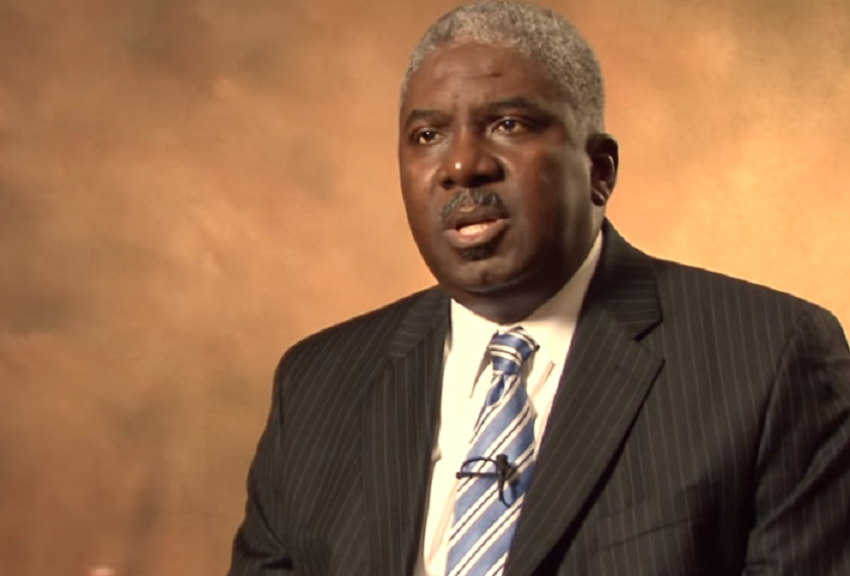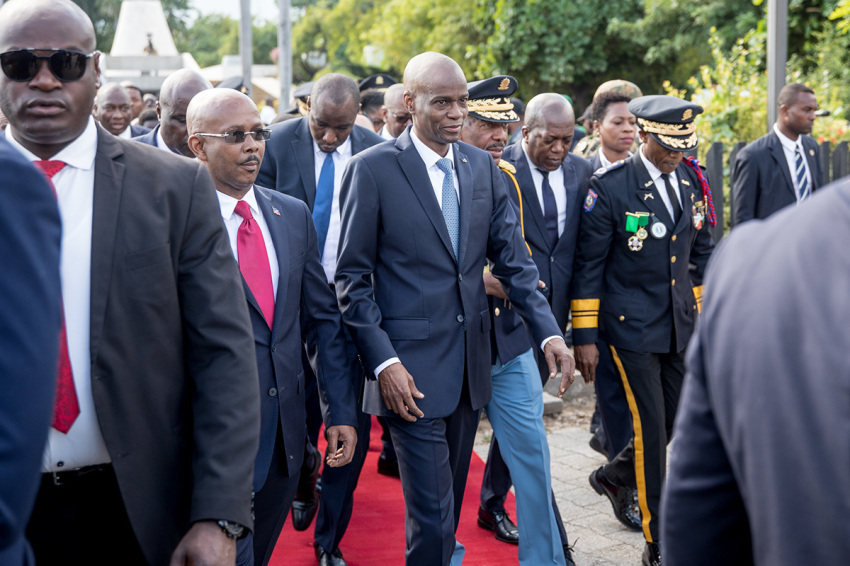Pastor is key suspect in assassination of Haitian president, but many say he’s innocent

Christian Emmanuel Sanon, a 62-year-old Haitian-born American pastor and medical doctor who has lived in the United States since the late 1970s, has been named by local authorities as one of the key suspects in the assassination of Haitian President Jovenel Moïse. However, the pastor, along with many who know him, says he is innocent.
“It’s obvious he’s being framed,” Sanon’s brother, Jean Sanon, told DailyMail.com from his home in West Palm Beach, Florida.
An unnamed source told CNN that Sanon was arrested over the weekend during a police raid in a hilltop neighborhood in the capital Port-au-Prince, a stone's throw away from the residence of acting Prime Minister Claude Joseph, who currently leads the country.
Police found boxes of ammunition and holsters for rifles and pistols, 24 unused shooting targets, a cap labeled "DEA" and four Dominican Republic license plates inside a complex with a sign that said "International Medical Village" on the door.
The source told CNN that during the raid, Sanon told police he had no knowledge of the attack on Moïse and he had no idea the building held the weapons found by police. He further stated that he was a Christian pastor and the property was not his.
Léon Charles, head of Haiti’s National Police, told reporters on Sunday that Sanon and several Colombians arrived in Haiti in June with “political objectives.” He explained that the plan was just to arrest Moïse, but "the mission then changed."

The late Haitian president was assassinated in an attack on his private residence in the hills above Port-au-Prince at about 1 a.m. local time on July 7, the BBC reported. Magistrate Carl Henry Destin told Le Nouvelliste newspaper that Moïse died at the scene, his body riddled with 12 bullet wounds. He further noted that the president's office and bedroom were ransacked and he was found lying on his back covered in blood.
Some 26 Colombians and two other Haitian-Americans have also been arrested in connection with Moïse’s assassination after a gun battle in Haiti following the attack.
"When we the police blocked the progress of these bandits after they committed their crime, the first person that one of the assailants called was Charles Emmanuel Sanon,” Charles said. "He contacted two other people that we consider to be the masterminds of the assassination of President Jovenel Moise.”
A recent letter to Julie Chung, acting assistant secretary for the State Department's Bureau of Western Hemisphere Affairs, signed “The People of Haiti” and cited by DailyMail.com, complained about the dangers of Moïse’s leadership and lobbied for Sanon to replace him.
“Our own democracy has now been taken. We are no longer free but instead are controlled by the authoritarianism of Jovenel Moise,” the letter said.
Moïse was killed as he pursued an aggressive agenda that included rewriting the country’s constitution — a move not supported by the U.S. and some local religious leaders, The New York Times reported. Critics feared that he was setting the country down a path toward authoritarian rule and threatening the nation's democracy.
The late president had been known to use gangs to repress political opponents, according to the U.S. government. Last year, the U.S. Treasury sanctioned two senior Haitian officials for allegedly planning the 2018 La Saline massacre, The Wall Street Journal reported. In that massacre, civilians, including children, were taken from their homes and executed in the streets. Their bodies were then burned and dismembered, the U.S. Treasury said.
Sanon, through a website called Haitianlivesmatter.com, had been calling for Moïse’s removal from office and the institution of himself as interim leader. A letter to Chung, acting assistant secretary for the State Department's Bureau of Western Hemisphere Affairs, warned that if the late president’s administration was also allowed to organize pending elections, the process would not be fair.
“Haitians are thoroughly convinced that even IF elections were ever organized by the current administration, these ‘elections’ would not be fair and therefore they would compound the current crisis,” it said. “Thus, as you say, Haiti is ‘paralyzed': no elections cause chaos, but, fair elections organized by the current administration are widely believed to be unrealistic. Therefore ... Haiti needs a transitional government to restore Haiti's democracy and freedom.”
Joseph Sanon, another of the pastor’s brothers, did not dispute that his brother was pushing for political change. He said, however, that the pastor is not a killer and defended him as a “godly man.”
“It would be good for the truth to come out. It would be good for there to be more information to know exactly what’s going on,” Joseph Sanon told DailyMail.com. “We are praying, asking the Lord to show us. I want to know the truth. I'm desperate to know it.”
According to The New York Times, Pastor Sanon filed for Chapter 7 bankruptcy in Florida in 2013, a move that would have made it challenging to hire mercenaries to carry out the attack on the late Haitian president.
Parnell Duverger, a retired adjunct economics professor at Broward College in Florida, attended about 10 meetings on Zoom and in-person with Sanon and other experts to discuss Haiti’s future government. He told The New York Times that he believed the pastor would become the next prime minister of Haiti, but stressed he couldn’t see him as an assassin.
“At the time of the meetings he was, we all believed, going to become a prime minister,” the 70-year-old Duverger told the publication. “I keep asking myself, there must be something wrong with me for being so naïve. I believed him. I believed that because I believed a new transitional government was needed in Haiti.”
The Rev. Larry Caldwell, a Florida pastor who once worked with Sanon to set up churches and medical clinics in Haiti, also told The Associated Press that he did not see the pastor as a killer.
"I know the character of the man," Caldwell said. "You take a man like that and you're then going to say he participated in a brutal crime of murder, knowing that being associated with that would send him to the pits of hell? ... If there was one man who would be willing to stand in the breach to help his country, it would be Christian."



























